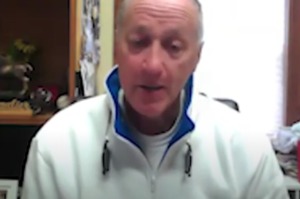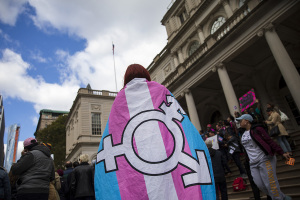Can Christians Escape the 'Hate' Label in Gay Marriage Debate?
Can Christians ever escape being labeled as “hateful” people while standing firmly on the pro-family side of the gay marriage issue?
Most recently, a controversial video that mocks Christians as haters and supports gay marriage in Minnesota was released by F**H8.com. The video, which is a parody of the pro-family stance, was created in order to promote and raise money for the pro-gay marriage cause in Minnesota.
Peter Sprigg, senior fellow for policy studies with the Family Research Council, believes that Christians need to make it clear that they are motivated by love.
"I think that's kind of the major challenge that we face,” he commented to The Christian Post. “We in the pro-family movement ... those of us who are Christians, we know in our hearts that we are motivated by love, not hate. The definition of love is not that you let people do whatever they want.”
"The essence of love,” he added, “is to desire the best for someone, and to act to bring that about. And I would argue that's what we think we're doing."
Sprigg may be all too aware of the “hate” label that Christian groups are slapped with.
Last year, the Southern Poverty Law Center added FRC to its list of anti-gay, hate groups for spreading “falsehoods” such as the claim that same-sex parenting is harmful to children. FRC President Tony Perkins rejected the “name calling” and said that to be silent on the issue of homosexual behavior is harmful and “in fact hateful.”
Sprigg also emphasized that he wants to see homosexuals spared from any harm, particularly emphasizing physical harm from health concerns like the AIDS epidemic. He does think, however, that Christians should make their motives clear about the issue.
"We may have to, I think, begin making that more explicit in everything, almost every time we talk about the subject,” he said.
Monica Meyer, executive director of the equal rights group Outfront Minnesota, supports gay marriage but doesn't believe that labels should be used against anyone, Christian or otherwise. She believes that eliminating labels is a key piece in trying to change the minds of pro-family supporters.
“What I find is that there [are] a lot of people who are moving to being more supportive and so I think, you know, trying to put a label on somebody definitely does not help in the process,” she said. She later added, “The labels don't work, of any kind, actually.”
“I can't speak for everybody ... I think that more often than not we as a society do better when we're trying to find our common ground,” Meyer commented.
According to a 2007 Barna Group study, 91 percent of young non-Christians said present-day Christianity is “anti-homosexual” and that Christians show “excessive contempt and unloving attitudes towards gays and lesbians.” A majority of young churchgoers also held this sentiment.
Overall, Americans give the church a low grade when it comes to how it handles the issue of homosexuality.
A Public Religion Research Institute study last year found that more than 4-in-10 Americans gave religious organizations a “D” (18 percent) or an “F” (24 percent) in their handling of homosexuality. Four-in-10 Americans also said they believe that the messages coming from places of worship contribute “a lot” to negative perceptions of gay and lesbian people.
But what worries Greg Quinlan, president of the Pro-Family Network, is that many Christians aren't standing in opposition to gay marriage for the sake of getting along with those on the other side of the debate.
"I am intolerant,” he said, “but I don't hate. Yes, there is a difference ... We have to turn the definitions around."
"Christians have to understand how to tell the truth in love, but it isn't love until you tell the truth. Now, we have to not be concerned about what other people think of us. We have to stop trying to be nicer than Jesus."
Quinlan's story is unique. Once gay himself, he has since become a Christian and now works to advance the pro-family movement. Regardless of whether or not Christians will ever shake their “hate” label, he said they should never back down from their position.
"When somebody calls us a hater ... we need to be all the louder, all the more persistent and consistent with our message,” he said.





























